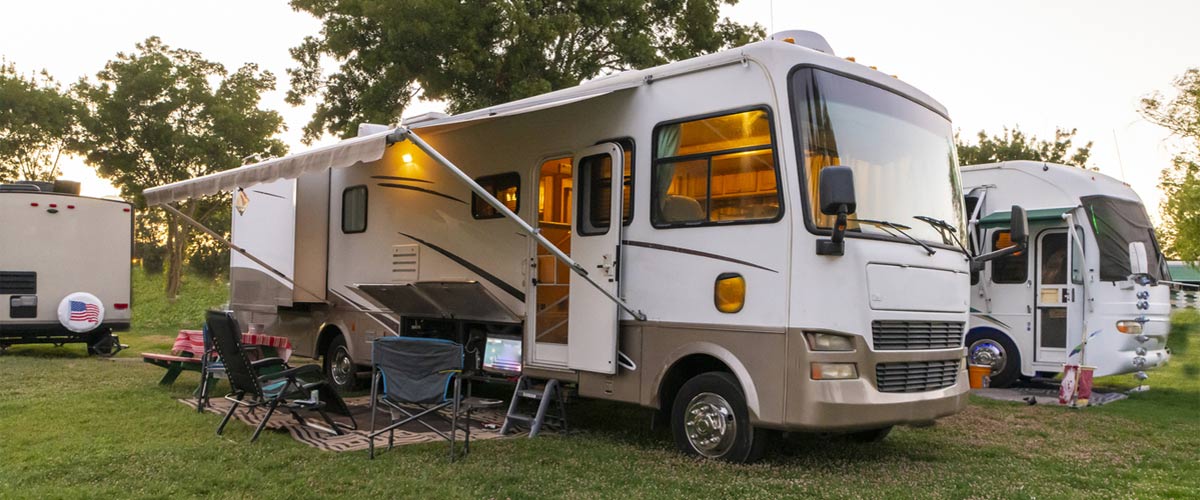Some people are fortunate enough to be able to park their camper on their property. Other people live in neighborhoods where the HOA prevents them from storing their travel trailer in their driveway or yard. It’s important to choose wisely when picking a long-term storage solution.
Whether you’re parking your RV at home or at a storage facility, don’t place it near overgrown fields, wood piles, or wooded areas. Those are prime places for rodents and pests to nest and it will make it easier for them to find your camper.
When choosing a long-term storage place, be sure and take a walk around the area you’re considering. Look for things that might be concerning and address them with the managers of the parking area. If you don’t get answers that suit you, pick a new place.
If you have access to electricity, stringing white rope lights on the ground around your travel trailer and leaving them on can create a protective barrier against rodents and nocturnal animals. If you can’t plug into an electric outlet, then consider throwing moth balls around the camper to keep pests away. You can also sprinkle ant or rodent killer on the ground around the RV as a deterrent, if it’s in a place where there won’t be any pets.
It may also be worth setting traps inside of or around your RV. The traps can capture rodents before they do too much, if any, damage. If you set traps, just make sure you check them regularly. You don’t want animal carcasses to begin rotting – that can cause other issues.
If possible, choose a facility that is fenced in and paved, or at the very least, has a gravel parking area. This will help keep pests out, as well. And regularly check on your camper whether you have it parked at home or at a storage facility. If possible, go by the lot once a week, or at the very least, once a month. Walk around your RV, check the undercarriage, and inspect the inside. Doing this will alert you to any pest problem you may have and allow you to get it under control quicker.


